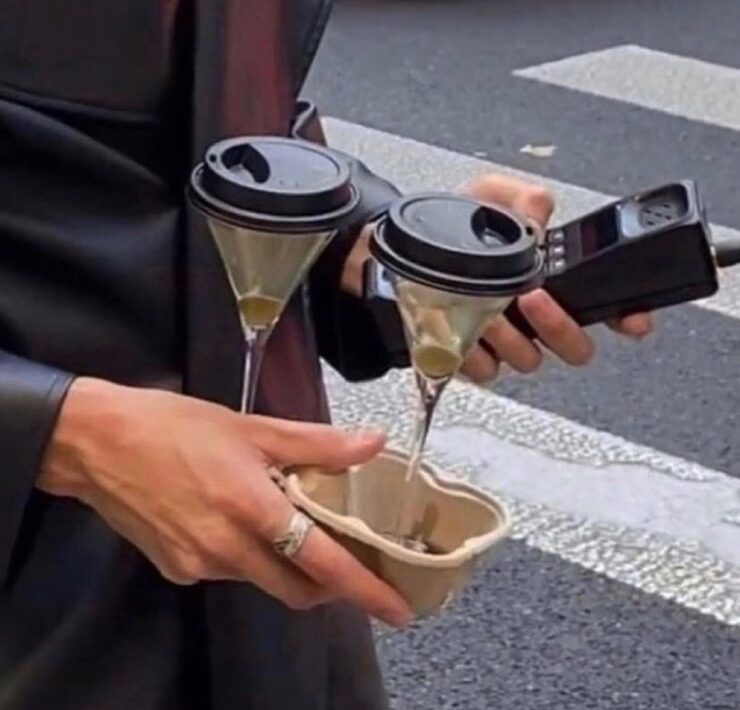Undiscovered Canvas: Nomaza Nongqunga Coupez Brings Contemporary African Art to the European Market
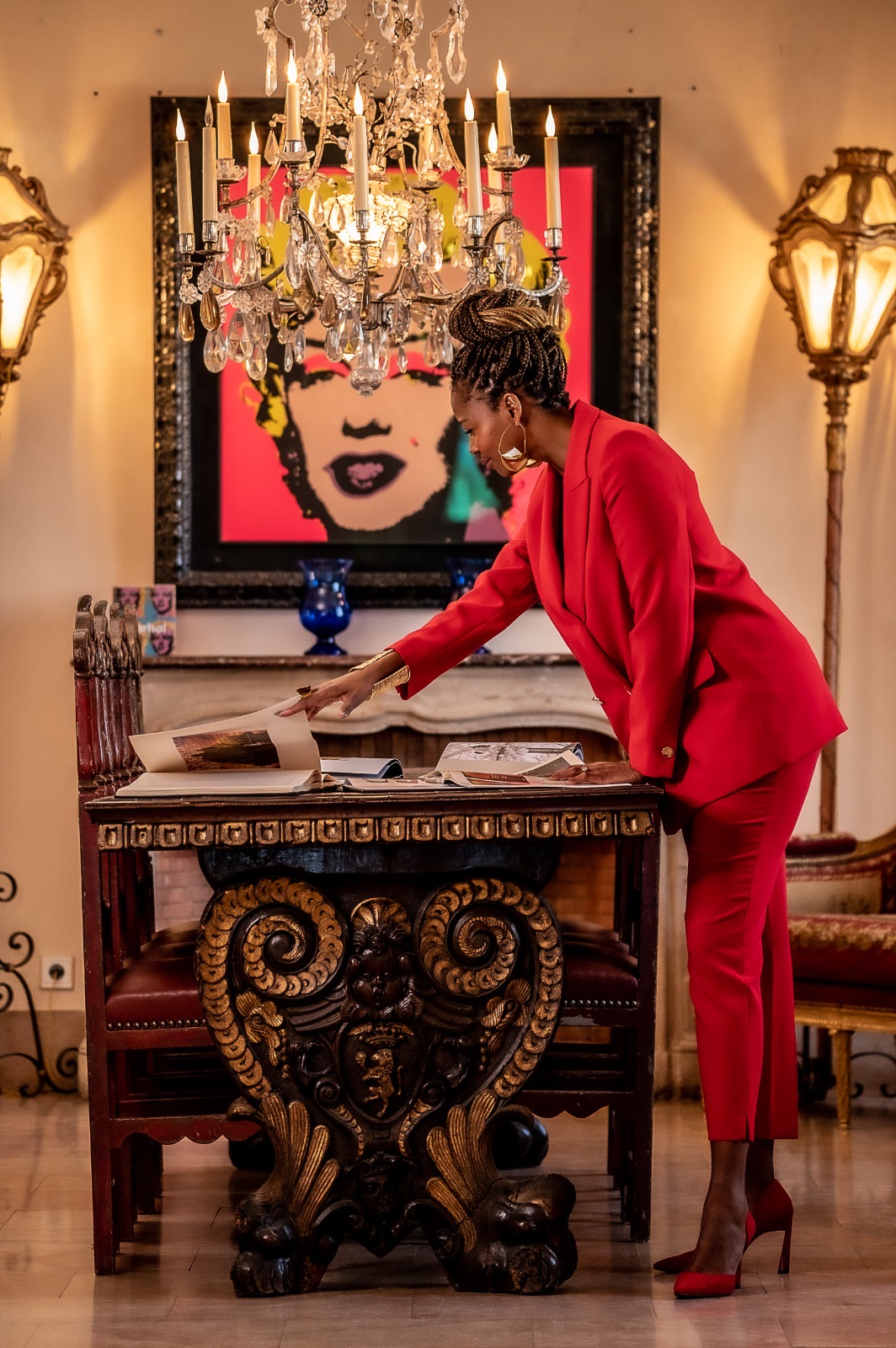
The founder of Undiscovered Canvas and former advisor to President Emmanuel Macron on the Conseil Présidentiel pour Afrique, continues her mission to bridge the gap between Africa and France with her new concept store in the Côte d’Azur.
The creative economy is one of the most rapidly growing global sectors, currently dominated by North America and Europe. Together, they account for 49 percent of the world’s cultural exports. In comparison, Africa accounts for only 1 percent of cultural exports. When Nomaza Nongqunga-Coupez moved to France from South Africa in 2009, she realised early on that African creatives (especially in the visual art sector) were not adequately represented in galleries or museums. While art, culture, and tourism, is France’s primary market, Coupez was inspired to use cross-cultural understanding as a vehicle to educate, empower, and improve the economic position of young African artists.
Using art as a tool to bring the African continent to France, Coupez founded her company, Undiscovered Canvas in 2017 to help young African artists gain visibility on the European market, quickly becoming the gateway to the young and diversified cultural mosaic of Africa, and the first South African woman in the French Riviera to create a residency program that aims to promote cross-cultural education and investment in the African arts. On average, Coupez’s visual artists have seen their works grow by a hundred percent in value each year.
At her new concept store in Antibes, the founder showcases carefully curated works by African artists and creatives, such as Lulama Wolf, Zandile Tshabalala, Mookho Ntho, Phumzile Buthelezi, Teresa Kutala Firmino, and Phila Hillie. Located on Boulevard D’Aguillon (Billionaire’s Quay), inside the old town next to the famous Picasso Museum, the concept store also includes a variety of rare fashion and jewellery that are ethically sourced, and inspired by the richly diverse cultural heritage of the motherland.
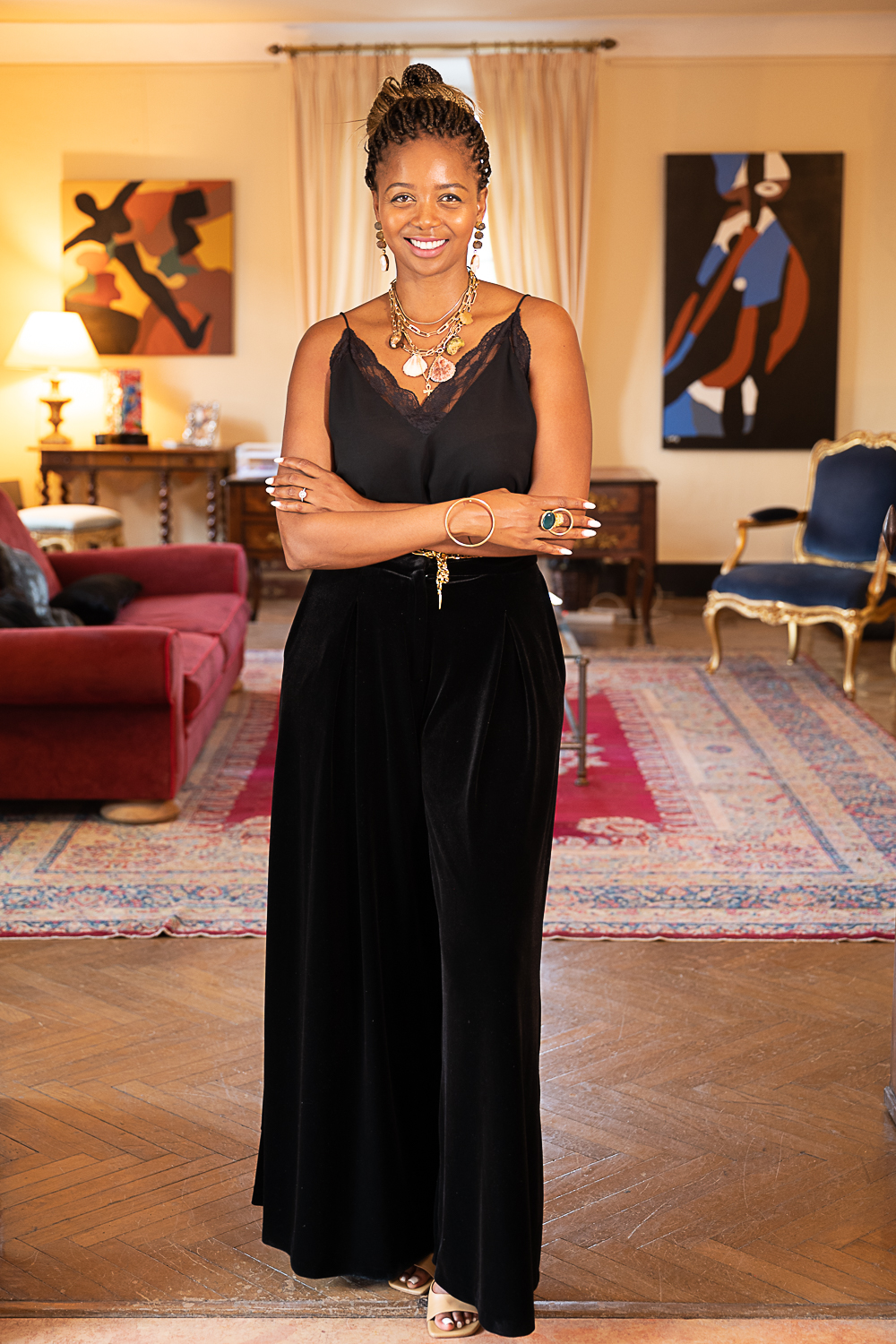
“Growing up in South Africa, it’s very natural for me to choose those African artists who are extremely talented but are marginalised and have less opportunities. I call us, the underdogs.“
How did you enter the art world?
I studied Biomedical Technology in University and worked for laboratories and pharmaceutical companies before arriving in France. However, when I arrived in France in 2009, I had the opportunity to discover myself. For the first time in my life I was not in survival mode, and I had time to ask myself the most important question « what is my purpose on this earth? ». My journey of self-discovery started and gave birth to Undiscovered Canvas. A boutique agency that promotes young and emerging African creatives in France and globally.
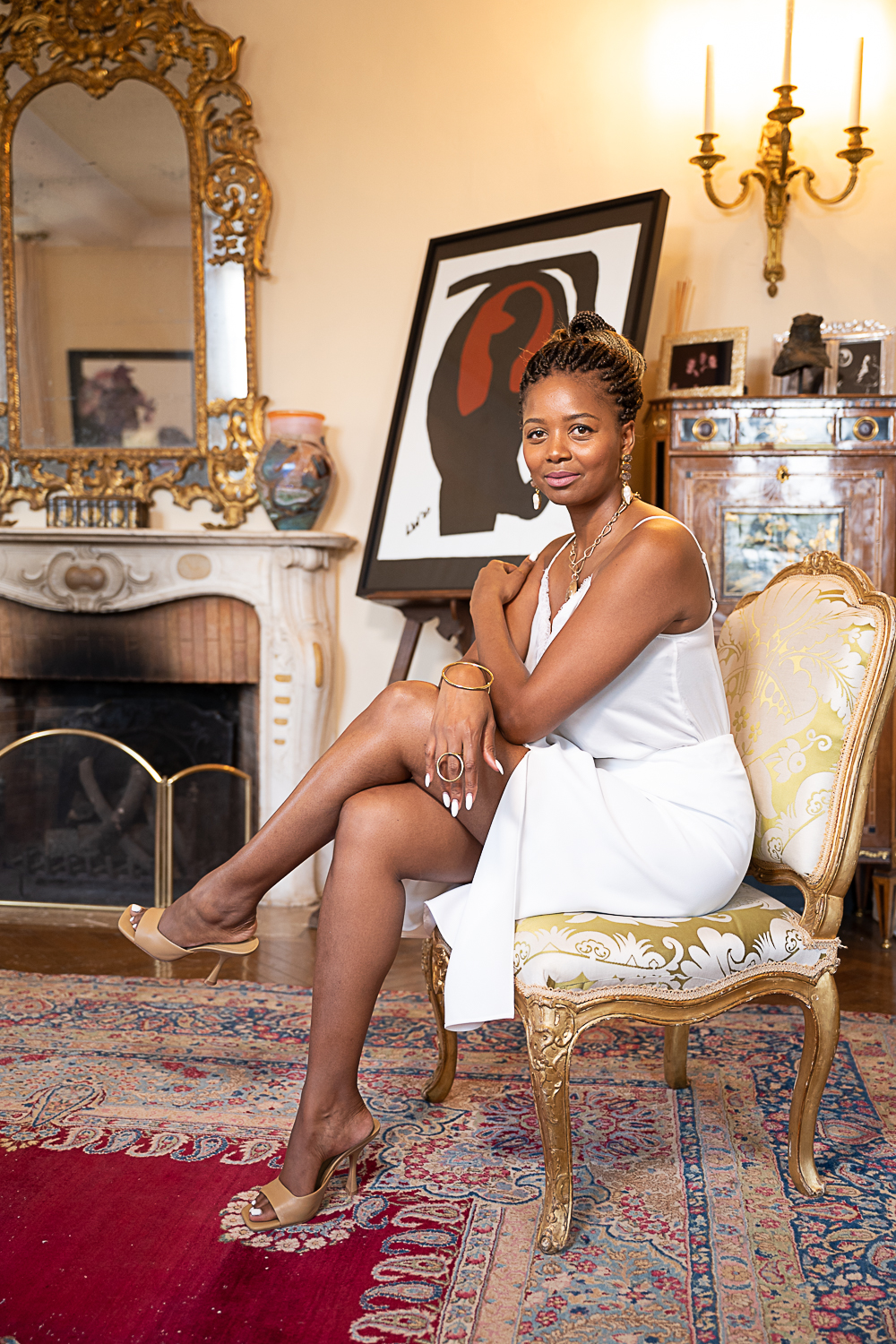
“I identified my passion when I arrived in France, as for the first time in my life I was able to sit down with myself and ask the myself the ultimate question: Nomaza what makes you happy? What is your your purpose on this planet earth?”
What was the goal behind the inception of Undiscovered Canvas?
I realised quite early on living in France, that this country is passionate about art, culture and tourism, and in fact, that culture is an important commodity. French cities know the value of Tourism as a result they have designed strong cultural programmes for the entertainment of tourists, from museums, theatres, fashion, and food. As a result, I saw many countries like China, Russia, Saudi Arabia, etc promote their culture in France, however it was very rare to see African creatives especially in the visual art sector showcasing their works in France. The ones I saw were visual artists that were already established in their countries, so a very small percentage. Coming from South Africa, I knew that there were so many more great artists with amazing talent but very few to no opportunities, and this I know because I grew up in that environment and faced the same challenges. This was when I released, I had to create a platform that would cater for the underdogs!
I also realised that Europeans, beyond the stereotypical narratives, knew little about the African Continent, and how the horrible clichés were still very much so present in their language, and influenced how they interacted with us as Africans. They mainly expressed war, poverty, under development, corruption and a sense of misplaced and uninformed pity with a sense of doom, whilst I knew Africa, as a continent that is young, vibrant, talented, innovative and with great opportunities not looking for handout but simply needing opportunities and with a bright future. I wanted to show that part of my continent!
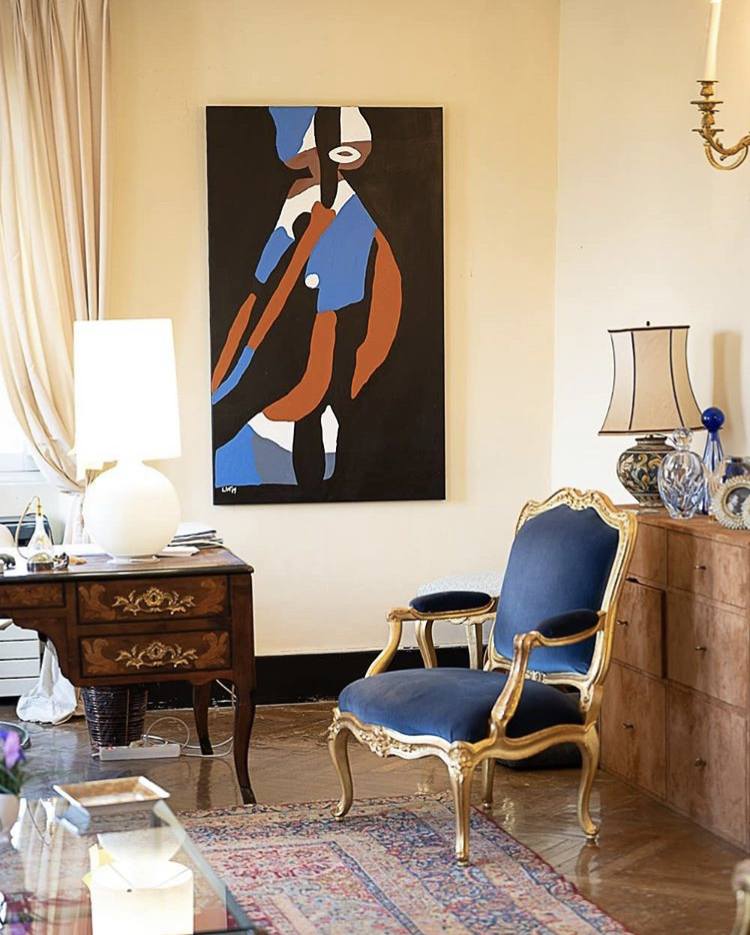
How did growing up in apartheid-era South Africa inform your perspective on African artists?
I grew up in a very segregated environment with many limitations imposed on me and very little opportunities. No matter how smart or ambitious I was, I knew that there were things that were just not possible for me. I am what I am today because France and so many people gave me an opportunity to reinvent myself. So, it’s very natural for me to choose those African artists who are extremely talented but are marginalised and have less opportunities. I call us, the underdogs.
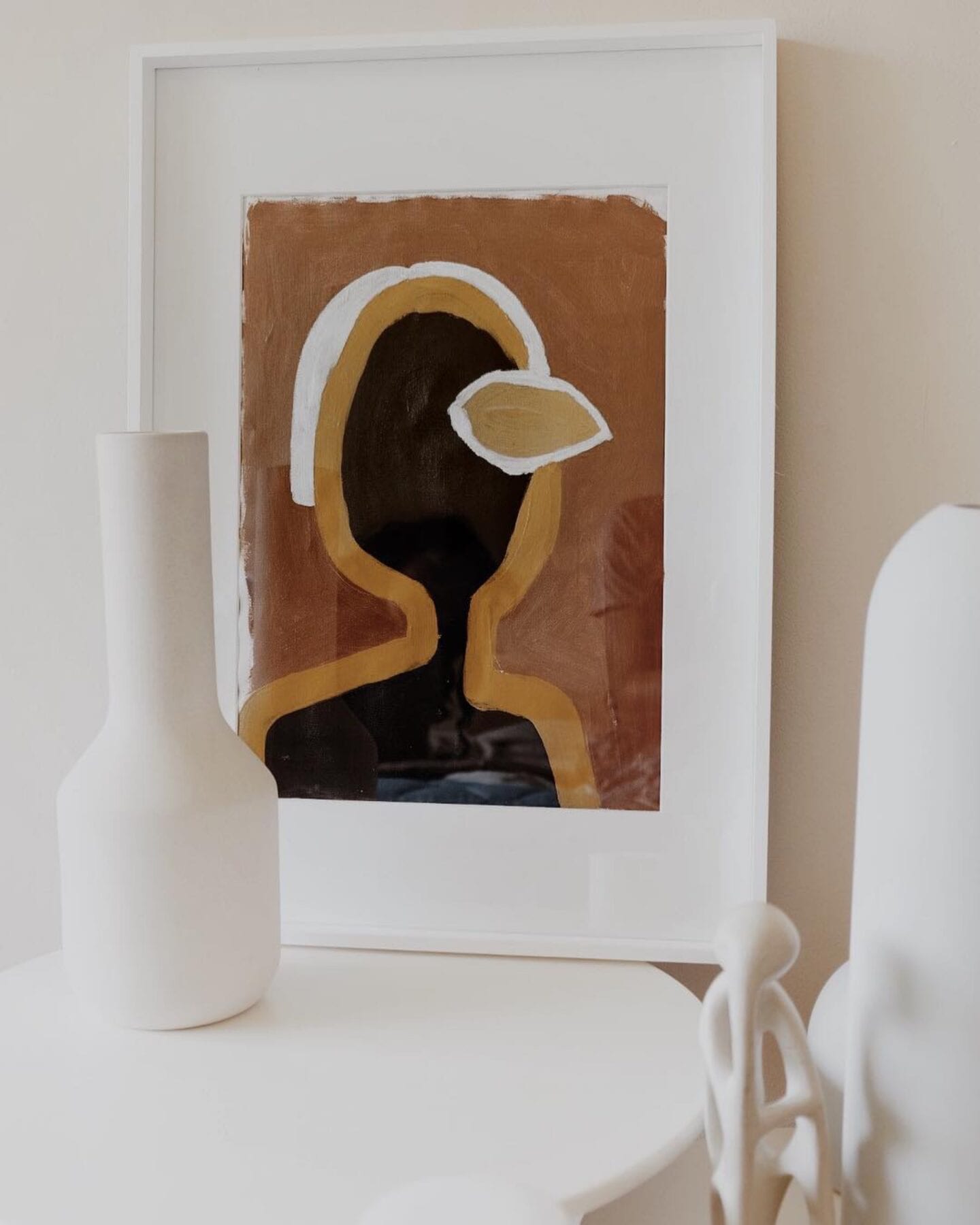
Why is Undiscovered Canvas focused on showcasing African artists’ work in the European art scene?
Europe is a very mature market that consumes cultural goods, compared to the current African market. It has a huge capacity of accelerating the artists’ careers, and that’s what I want the most, for young African artists to live well, out of their talents and creativity.
Showcasing African artists in Europe also stimulates demand for them on the African continent, creating a strong local clientele base, and that’s very important as the African middle class is increasing, these artists then benefit economically from a strong local base, and don’t depend on only international sales.
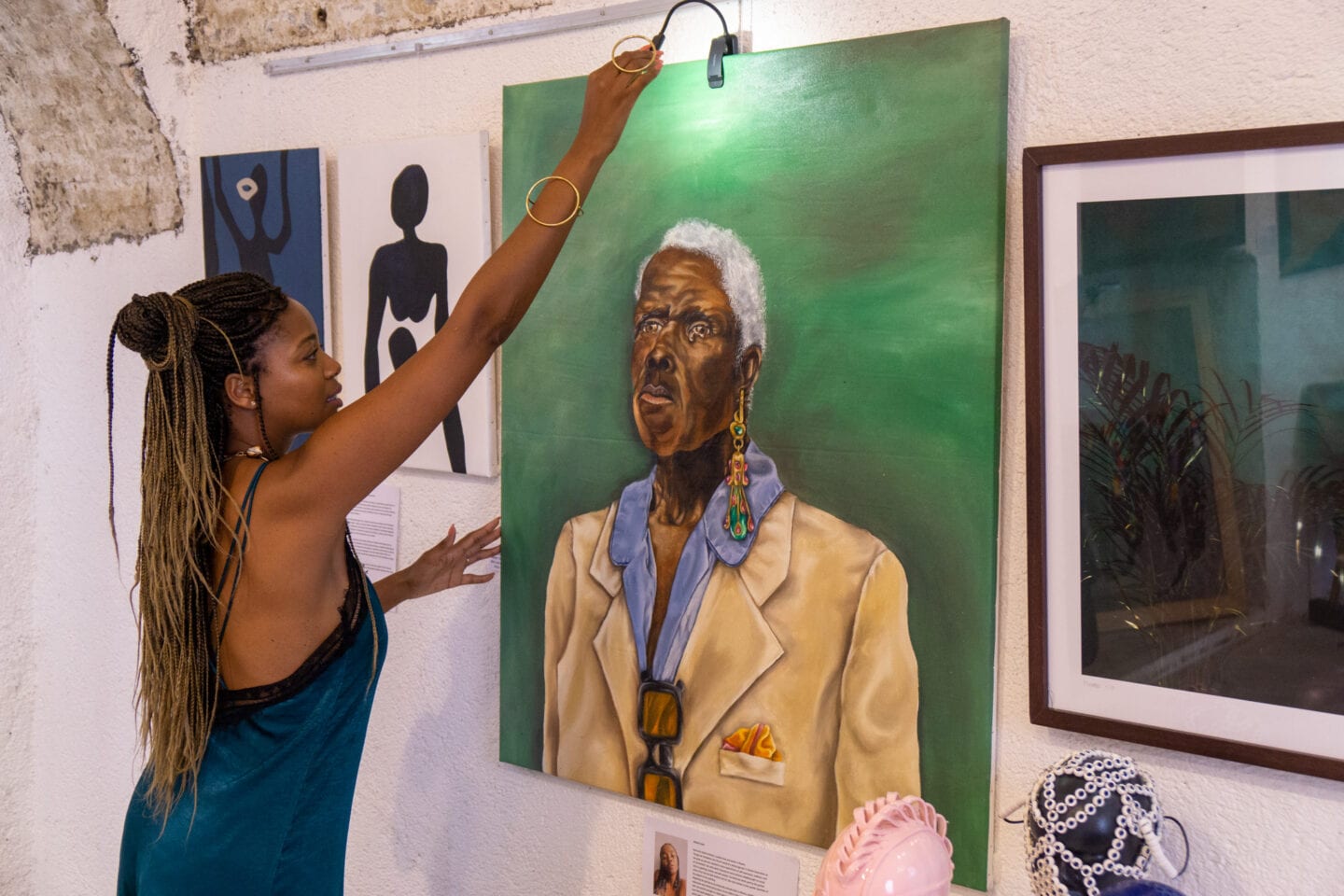
How does Undiscovered Canvas invest in their artists?
We organize strategic art events that introduce the artist’s work directly to the buying market, in partnership with Galleries across Europe and South Africa, architectural houses and Cities around France. We build a strategic marketing and communication plan that introduces the artist’s work to the global audience. We run an art residency in the South of France, where we invite African artists to come and live in France, we then inspire young African artists through learning about the French culture and living experiences in France. And the residency also enables productive collaborations between French artists and the young African artists.
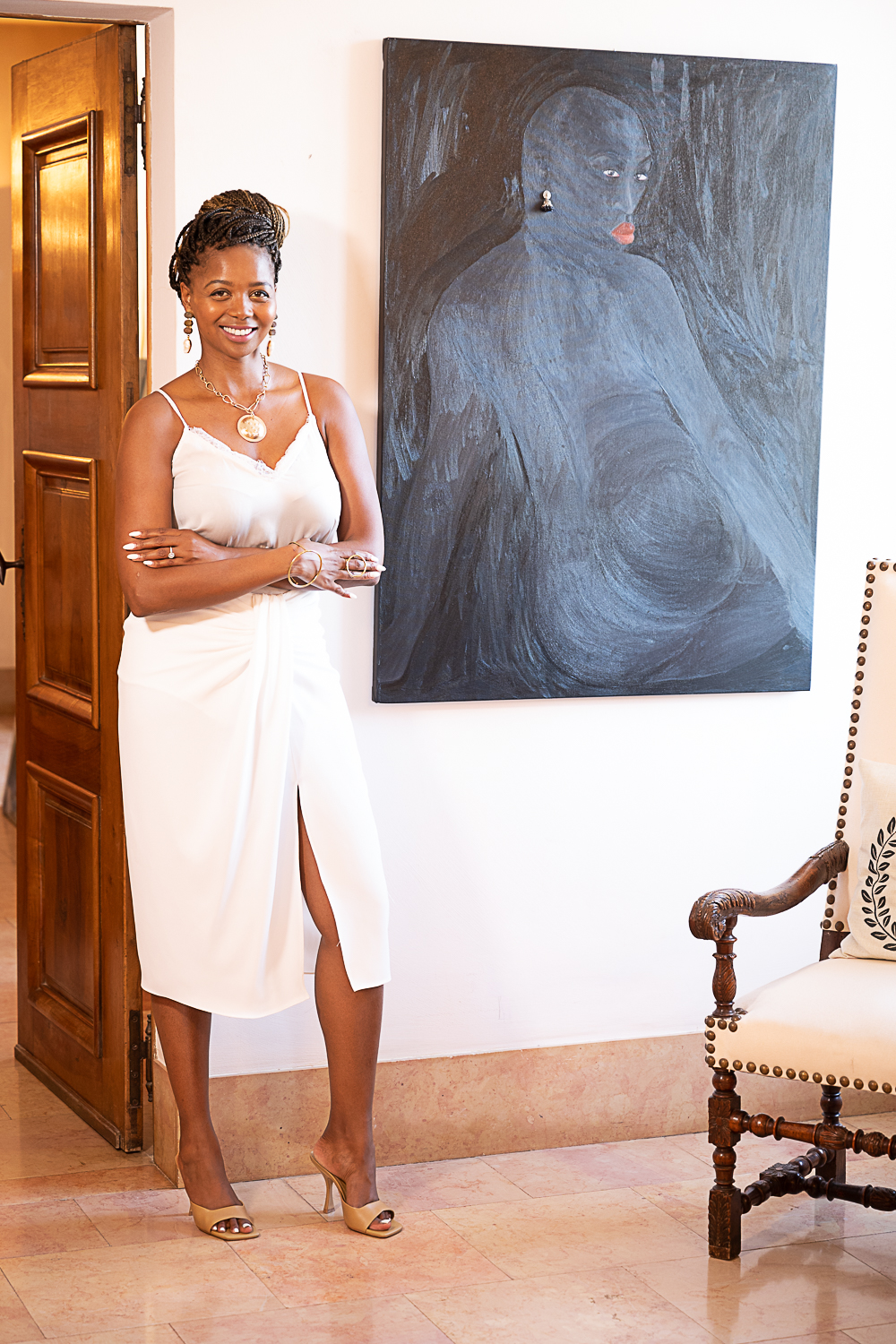
What are your goals for the Concept Store in Antibes and how did you come up with the idea?
The concept store opened the 1st of August and will run until the 30th of September. I have curated a space showcasing the best creative talents from the African continent, with a variety of rare objects that are ethically sourced, chic and inspired by the richly diverse cultural heritage of the motherland, consisting of art, fashion, jewellery, and design furniture. The idea is to show the best of my Continent! This is my mission always and at the same time create a beautiful experience for the viewer, a place where we exchange ideas and perspectives.
The idea came as I was discussing with the City of Antibes on how they can showcase African creatives in their cultural programme, they were fascinated with the idea and asked me to bid for a public tender that gave me access to use one of their beautiful spaces, and curate, which is right by the Billionaires Quay, one of the rare quays where yachts larger than 100 metres can moor, inside the old fortified town and next to the famous Picasso museum.
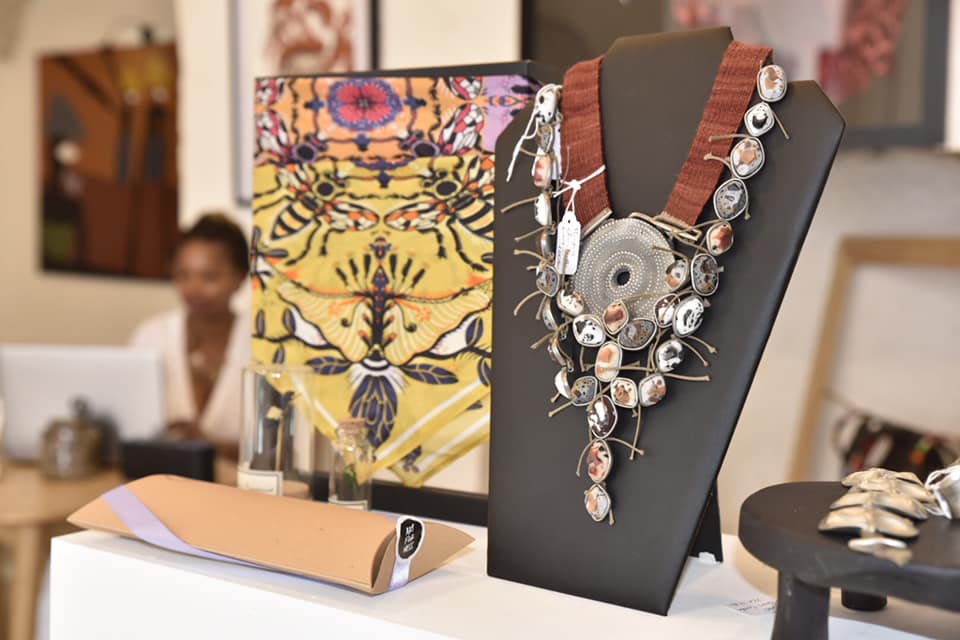
Can you speak about the importance of cultural exports and the African economies?
We know that creative economy is now recognised as one of the most rapidly growing sectors of the world economy. It is dominated by developed countries – with North America and Europe accounting for 49 percent of the world’s cultural exports.
There is no doubt in my mind that Africa’s best commodity is our culture, heritage and our creativity. Today globally we count for less than 1 percent. So, we are extremely underperforming. There is great opportunity for growth. We lack largely infrastructure, investment and policies to start performing well. However, we have countries like South Africa, Rwanda, Kenya, Nigeria, Senegal to name a few where either the government is making creative industries their priority or simply the will of the people is so strong they stimulated demand by themselves, here I am thinking of Nigeria in particular.
Cultural export is important as it acts a bridge between creativity and globalisation and is also a source of innovation in both products and processes.
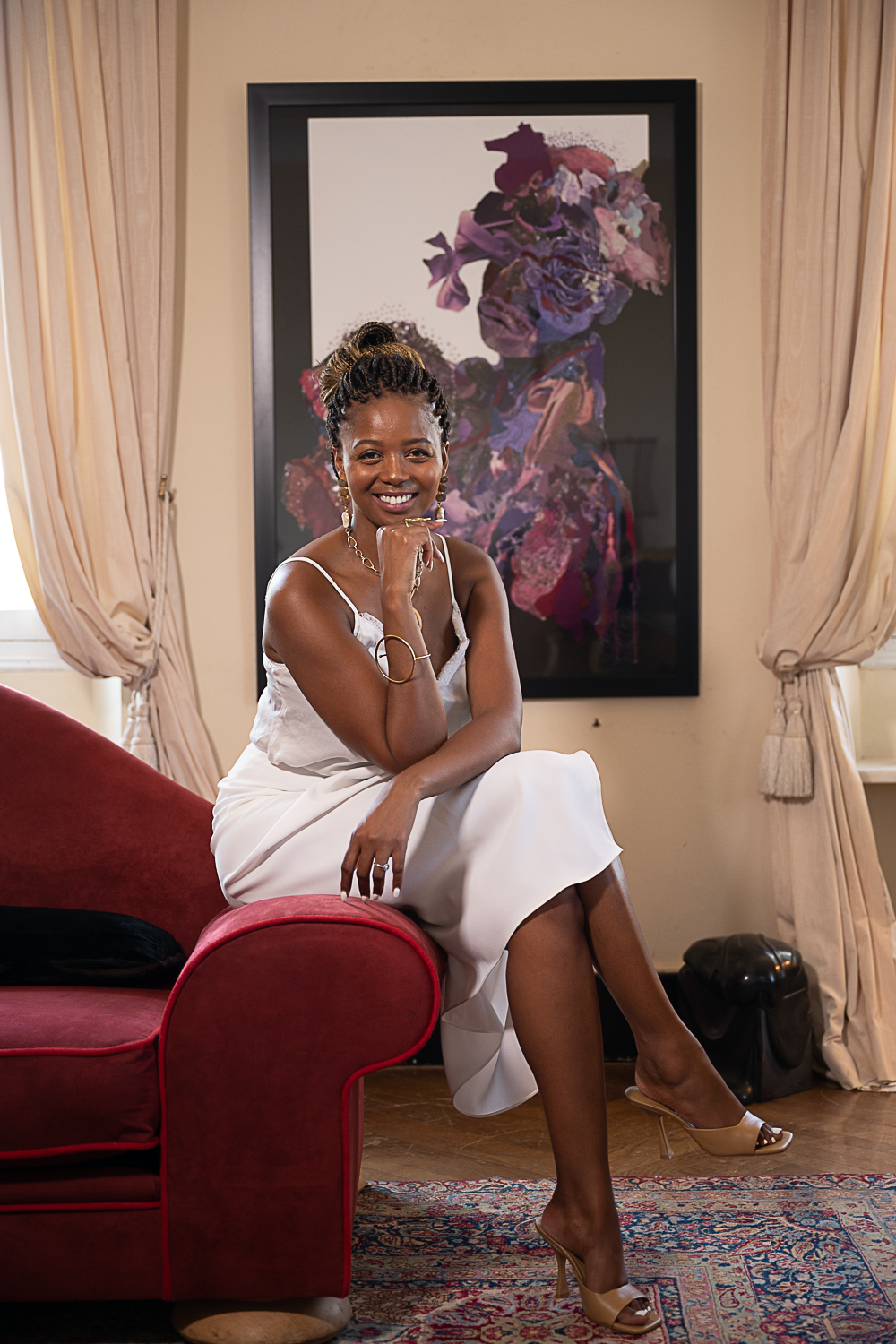
“When you are constantly pursuing a better version of you, you became your biggest inspiration, and if you keep at it constantly when you look back you simply can’t help but admire the woman you have become.”
Where will Undiscovered Canvas be in five years? Which artists will be represented, and who will be buying?
It is very difficult for me to see Undiscovered Canvas in 5 years, as I would not have imagined the growth, I have achieved the past 3 years. My motto is to build day by day and in so doing experience has shown me that the future takes care of itself.
I would like to grow with the artists I represent, until they are signed by biggest companies or galleries who can give them more opportunities than I can.
On my side, I am working hard to build appreciation of contemporary African art by Africans in so doing building a cultural consuming market in Africa.
I will continue finding the hidden gems of Africa.


